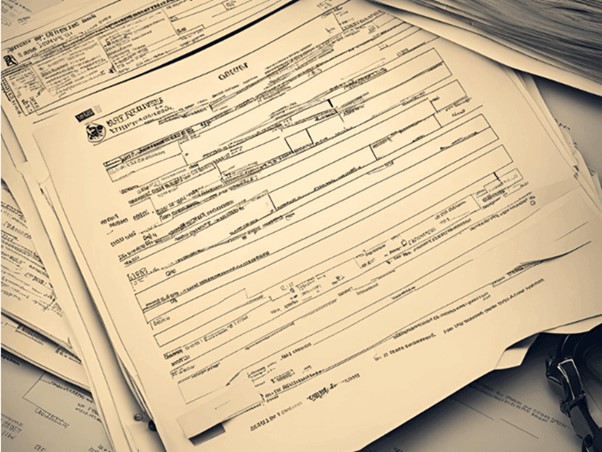The impact of identity fraud and identity theft on individuals is not to be underestimated. These malicious activities result in severe consequences for victims, ranging from financial loss to damage to their reputation and their credit report and score.
Understanding Identity Fraud and Identity Theft
Identity fraud and identity theft are serious crimes that can have detrimental effects on individuals and businesses. It is important to understand what these terms mean and how they could potentially impact your life.
Identity Fraud
Identity fraud mainly refers to the unauthorised use of an individual’s personal information. Fraudsters could potentially use personal information such as your name, identity number, social security number, credit card details, bank name, or even home address for fraudulent activities.
Identity Theft
Then again, identity theft involves the deliberate use of an individual’s identity to perform a transaction, often for financial gain, without the person’s consent.
Both identity fraud and theft lead to various negative consequences, including financial loss, damage to credit scores, and emotional distress. Understanding the nature of these crimes is the first step in protecting yourself and your business from becoming victims.
Thus, it is important to be aware of criminals’ different tactics to steal identities. Tactics such as phishing emails, data breaches, and impersonation scams are all a part of identity theft and fraud today. Staying informed and taking proactive measures reduces the risk of falling victim to identity fraud and theft.
How Stealing Identity Affects Your Business and Individuals
Identity theft holds severe consequences for both businesses and individuals. For businesses, it usually results in financial losses, damage to reputation, and legal complications.
In the case of individuals, identity theft will wreak havoc on their personal and financial lives. It often leads to fraudulent charges on credit cards, unauthorized access to bank accounts, and even the creation of whole new bank accounts or accounts in their name. The process of recovering from identity theft is time-consuming, stressful, and costly.
To mitigate the impact of identity theft, individuals and businesses should take proactive measures to safeguard personal information, such as using strong passwords, regularly monitoring financial statements and credit reports, and being cautious of sharing sensitive information online.
5 Ways Someone Can Steal Your Identity?
Phishing
Fraudsters may send deceptive emails or messages pretending to be organisations. This way they trick individuals into sharing personal information with them.
Data Breaching
Hackers or criminals gain unauthorised access to databases or even documents containing personal information. They use the information to commit identity theft.
Social Engineering
This involves manipulating businesses or individuals into revealing personal or business information. They do this using methods of impersonation or manipulation.
Skimming
Often criminals use technology or devices to capture credit card information from unsuspecting individuals at an ATM or point-of-sale terminal.
Mail Theft
Mail or confidential document theft easily leads to identity fraud and identity theft. Criminals access personal information via documents, bank account statements, credit card numbers or social security numbers. They attain the information by collecting paperwork from unsecured disposal or stealing it from your home or business.
What is an example of identity theft or Identity Crime?
A criminal could easily obtain an individual’s credit card information and use it to make unauthorised purchases on their behalf.
Fraudsters use your social security number and personal details to open bank accounts or move stolen money to other accounts in your name.
Often using personal information, criminals could easily steal your identity and impersonate you.
Identity theft can take various forms, and it is essential to be vigilant and take immediate action if you suspect that your own identity information, has been compromised.
The Consequences of Identity Theft
The consequences of identity theft are significant and long-lasting. Financially, victims may face loss of funds, unauthorized charges, and damage to their credit scores. Repairing the damage is often time-consuming and costly.
Identity theft causes much emotional distress, as victims may experience feelings of violation, betrayal, and anxiety. It could potentially erode their trust in others and impact their overall well-being.
In addition, identity theft also results in legal issues. Victims may need to navigate through complex processes to clear their names and resolve any criminal activities associated with their stolen identity.
How to Protect Yourself and Your Business Against Identity Fraud and Identity Theft
To effectively protect yourself and your business against identity fraud and theft, it is important to understand what they entail.
Identity thieves can obtain personal information through various methods, and use this information to open fraudulent online accounts,, make unauthorized purchases, or even commit crimes under someone else’s name.
By understanding the tactics used by identity thieves, you can be more vigilant in protecting your personal and business information.
How Can I Prevent Identity Theft?
Preventing identity theft requires a proactive approach.
Here are some steps you can take to reduce the risk:
- Regularly Monitor Financial Records – Try to monitor your financial accounts and credit records for any discrepancies. Report any issues or unauthorised transactions immediately. Be cautious with any financial statements and documents.
- Do Not Share Personal Information – Be very careful when you post online share any personal or personally identifiable information, especially online. Be careful to keep personally identifiable information, such as your personal details, address, social security or ID number confidential.
- Avoid Carrying Confidential Documents with You – Unless necessary, keep your confidential records in a safe place. It is important to keep documents such as identification documents, social security cards, and other personal documents at home.
- Be Wary of Unsolicited Phone Calls – Never share personal, financial, or business information over the phone. Most legitimate organisations will not request sensitive information over the phone.
- Educate Yourself and Employees – Make sure you have enough knowledge about common identity theft tactics and know how to spot them. Similarly, businesses need to educate employees on identity fraud and identity theft.
By implementing these preventive measures, you can significantly reduce the risk of falling victim to identity theft.
Protecting Your Personal Information
Safeguarding your personal information is essential in preventing identity fraud.
Here are some tips to protect your personal information:
- Never share sensitive or confidential information unless it is necessary and a trusted source.
- Always use secure online methods such online services such as encrypted mail and secure online portals to share information.
- As mentioned, regularly review bank accounts and credit card statements for unauthorised transactions.
- Securely store all physical documents with confidential information.
- Properly dispose of secure documents using a shredding service as the safest option.
By being proactive in protecting your personal information, you can minimize the risk of identity fraud.
Securing Your Business Against Identity Fraud
Identity fraud leads to severe consequences for businesses, including financial loss and damage to reputation.
Here are some measures to secure your business against identity fraud:
- Implement a comprehensive data security policy that includes encryption of sensitive data, regular data backups, and secure access controls.
- Train your employees on data security best practices, such as recognizing phishing emails and using secure passwords.
- Conduct regular security audits to identify vulnerabilities in your systems and address them promptly.
- Limit access to sensitive business information to authorized personnel only.
- Monitor your business accounts and financial transactions for any other suspicious transactions or account activity.
- Consider obtaining cyber insurance to mitigate the financial impact of a potential data breach or identity fraud.
- Dispose of old confidential documents in a secure document destruction method, such as shredding.
By prioritizing data security and implementing these measures, you can protect your business from identity fraud and its detrimental effects.
Document Destruction and Safety for Paper Documents
Identity fraud often occurs through the theft of physical documents that contain personal information. Properly disposing of paper documents that are no longer needed is crucial to protect yourself and your business from identity crime. Implement a document destruction policy that includes shredding sensitive documents before discarding them. This ensures that identity thieves can not retrieve any personal information.
Many shredding companies ensure the complete destruction of documents while providing a document destruction certificate for your peace of mind. Usually, a shredding service is the better option in comparison to destroying or shredding documents on your own account.
In addition to document destruction, it is important to keep physical documents containing personal information secure.
Cyber Support Service for Digital Data
In today’s digital age, protecting your personal and business information online is equally important. Utilize cyber support services to safeguard your digital data from identity theft. Install reliable antivirus software on all devices and keep it up to date. Regularly scan your devices for malware and other security threats.
Implement strong passwords, that are unique for all online accounts, and consider using a password manager to securely store and manage them. Enable two-factor authentication whenever possible to add an extra layer of security to your online and mobile phone accounts.
Regularly update your devices’ operating systems and applications to ensure that you have the latest security patches. Be cautious when clicking on links or downloading attachments from unknown sources, as these can be phishing attempts to steal your personal information.
How to React if You Become a Victim of Identity Theft and Fraud
Despite taking all necessary preventive measures, it is still possible to become a victim of identity fraud or theft. If you suspect that your personal or business information has been compromised, taking immediate action is crucial.
Here’s what you can do:
- Contact the relevant financial institutions and credit bureaus to report the incident and request a fraud alert or credit freeze.
- File a report with your local law enforcement agency.
- Keep detailed records of all communication and actions taken to resolve the identity fraud.
- Monitor suspicious activity check your accounts and credit reports closely for any further fraudulent activity.
- Consider enlisting the help of a professional identity theft protection service to assist in resolving the issue.
Acting swiftly and following these steps, minimises the damage caused by identity fraud and helps you take back control of your personal and business information.
As a last thought;
Identity Fraud and Identity Theft is something all businesses and individuals are at risk of. With scams and criminals becoming more and more competent by the day, no one is absolutely safe. However, by following a few simple techniques to keep your data secure, you could easily reduce the potential risk of identity theft, and other data breaches.
Stealing someone else’s identity is a commonly used term to describe Identity Theft. The malicious act occurs when someone obtains personal or confidential information and issues it for fraudulent purposes.
What to do if someone steals your identity?
If you suspect that your identity has been stolen, it is vital for you to take immediate action. By following these steps and acting quickly you will be able to minimise the damage.
With your ID, you can prove your identity and gain access to essential services such as opening a bank account, obtaining a driver’s license, or even travelling internationally. It serves as a gateway to your personal information and allows you to engage in legal transactions, such as signing contracts or purchasing age-restricted items. Additionally, they could use your ID as a form of verification for employment purposes, for example, enabling you to secure job opportunities and showcase your eligibility.
I am a skilled writer, proficient in creating informative and engaging content for my audience. With my enthusiasm for security and environmental factors, secure document shredding has sparked my interest.
I have a strong research background and a deep understanding of the importance of secure document shredding today, especially with the rise of the digital era. My passion lies in educating businesses and individuals on the importance of protecting their sensitive information and the necessity of secure document shredding and recycling.
Through my well-researched articles, I hope to inspire and educate my readers on the complexities of document shredding, safeguard privacy, and emphasise the importance of contributing to sustainable efforts.
Furthermore, I am committed to raising awareness about data security and waste reduction. Every blog post I create follows strict and meticulous guidelines to ensure that my readers receive valuable and factual insights into the vast landscape of the shredding service industry and data security practices.
- Eliza Van Eykhttps://shred2u.com.au/author/eliza/
- Eliza Van Eykhttps://shred2u.com.au/author/eliza/
- Eliza Van Eykhttps://shred2u.com.au/author/eliza/
- Eliza Van Eykhttps://shred2u.com.au/author/eliza/









